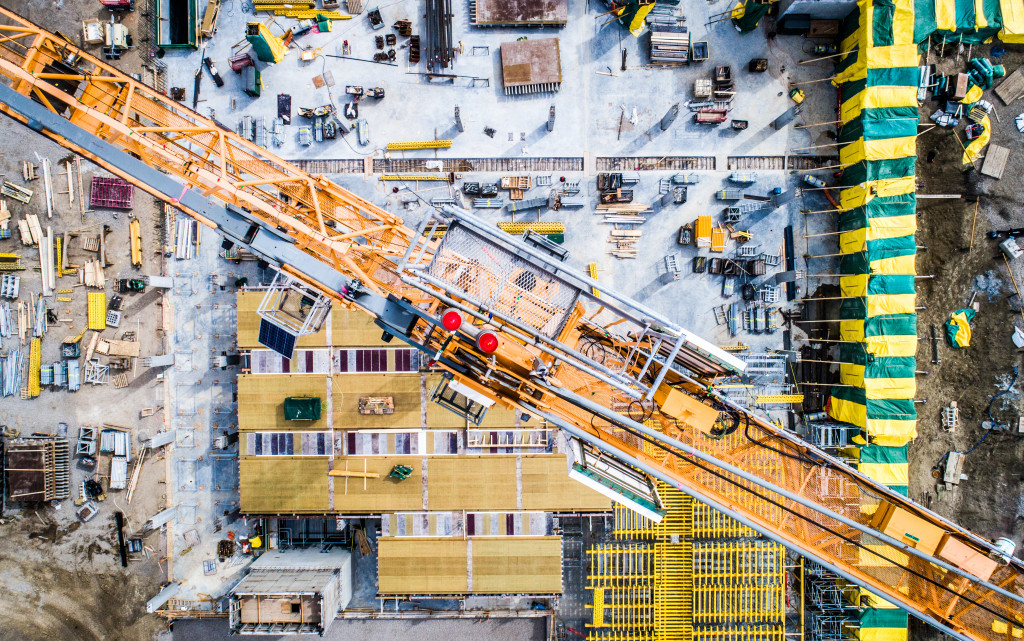• The Occupational Safety and Health Act (OSHA) requires employers to provide a safe workplace without recognized safety hazards.
• The National Labor Relations Act (NLRA) protects workers’ rights to join a union, bargain collectively, and engage in other concerted activities.
• The Americans with Disabilities Act (ADA) requires employers to provide reasonable accommodations to employees with disabilities.
• The Fair Labor Standards Act (FLSA) establishes every employee’s pay and regulates work and child labor hours and overtime pay rates.
• The Environmental Protection Agency (EPA) regulates construction activities that have the potential to impact the environment.
Running a construction business can be a challenging job. With little room for error, many laws and regulations must be followed to maintain a safe work environment for your workers and avoid costly legal repercussions. As a construction firm owner, you must be aware of the most common laws in the construction industry, as these laws are critical to keeping your employees and your business safe from legal problems.
The Occupational Safety and Health Act (OSHA)
One of the most important laws in the construction industry is the Occupational Safety and Health Act (OSHA). This law requires employers to provide a safe workplace without recognized safety hazards. OSHA also requires employers to maintain records of workplace injuries, accidents, and illnesses. All construction firms must adhere to the regulations of OSHA, and failure to do so could result in hefty fines, negative publicity, and legal action.

National Labor Relations Act (NLRA)
The National Labor Relations Act (NLRA) is the law that governs the relationship between employers and their employees. It protects workers’ right to join a union, bargain collectively, and engage in other concerted activities. As a construction firm owner, it is vital to understand the NLRA and how it affects your business. You need to be familiar with the act’s provisions, including the requirements for collective bargaining, unfair labor practices, and the workers’ right to strike.
Americans with Disabilities Act (ADA)
The Americans with Disabilities Act (ADA) is a law that stops discrimination against disabled people in the workplace. The construction industry includes people from all walks of life, and it is vital to ensure that your business is accessible to all individuals, regardless of their physical ability. This law requires employers to provide reasonable accommodations to employees with disabilities, such as accessible workspaces, wheelchair ramps, and modified equipment.
The Fair Labor Standards Act (FLSA)
The Fair Labor Standards Act (FLSA) establishes the overall pay of every employee. Construction companies must adhere to the regulations set forth by this law, which guarantees that workers are paid fairly and appropriately for their time and work. This law also regulates work and child labor hours and sets guidelines for overtime pay rates.
Environmental Protection Agency (EPA)
The Environmental Protection Agency (EPA) is a federal agency responsible for protecting environmental resources and human health. Construction activities have the potential to impact the environment significantly, and construction companies must comply with EPA regulations. Firms must obtain proper permits before beginning any construction projects that have the potential to harm the environment. This law also regulates the disposal of hazardous materials and waste.
The Problem When You Break These Laws
If you think your firm has violated any of these laws, it is important to act quickly. Failing to comply with the regulations of these laws could result in costly fines, negative publicity, and legal action against your business. Here’s what to do when that happens:

Hire a Lawyer
You must hire a lawyer immediately if you think you’ve broken one of these laws. An experienced litigation lawyer can help you navigate the legal process, minimize potential penalties, and avoid costly litigation. Morever, they can help you work with the relevant government agencies to ensure that your business is brought into compliance.
Conduct an Audit and Take Corrective Action
Taking corrective action if you’ve broken the law and identifying any other potential issues is essential. Conducting an internal audit of your company policies and procedures can help you find and address any areas of non-compliance. Taking corrective action is critical to avoiding future legal problems and rebuilding trust with government agencies.
Create a Plan for Compliance
Once you’ve taken corrective action and corrected any violations, creating an effective compliance plan is essential. This should involve creating specific policies and procedures to ensure your firm follows all applicable laws and regulations. Additionally, it’s advisable to have regular audits of your policies and procedures to ensure that your business complies with the law.
As a construction firm owner, knowing the industry’s laws is essential. Failing to adhere to these laws could result in costly fines and legal action against your business. Taking the necessary steps to ensure your business is compliant with these laws can help you avoid any potential legal trouble.
